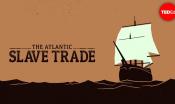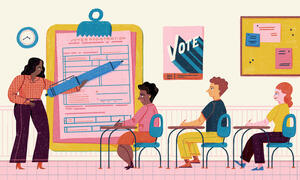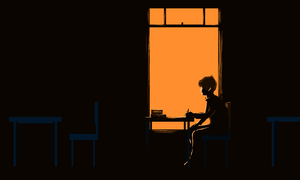The Atlantic Slave Trade: What too few textbooks told you



A truly just society is one in which all people have the resources to lead secure and fulfilling lives and the histories, cultures and experiences of diverse groups — especially those who have been historically marginalized — are respected.
The goal of social justice, therefore, is to ensure democracy in practice: “To create a society in which everyone has access to the resources and opportunities to develop their full capacities, and everyone is welcome to participate democratically with others to mutually shape social policies and institutions that govern civic life.”
October is LGBTQ+ History Month. LGBTQ+ people have always existed, but LGBTQ+ history, which is an integral part of the history of the United States, has often been ignored or erased. We offer a few of our resources for learning and teaching about the contributions of LGBTQ+ people, including articles, posters and our 13-episode podcast series, Queer America, devoted to this understudied history.

